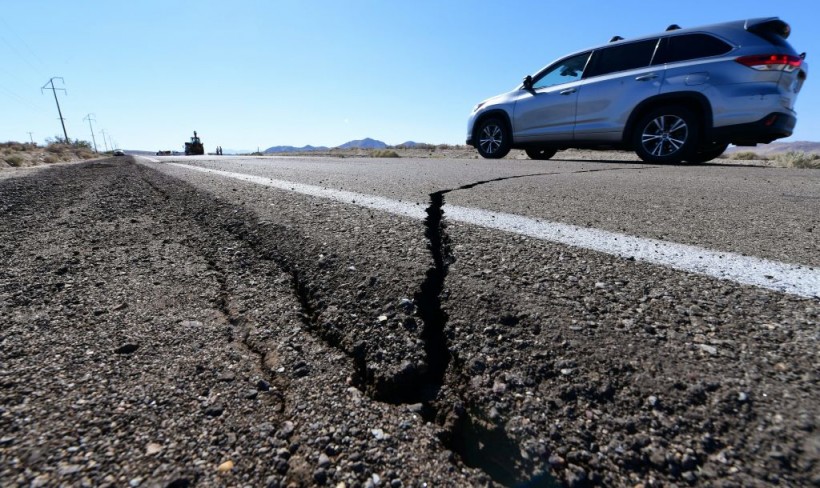According to the latest earthquake report, a powerful 6.5 magnitude earthquake struck Papua New Guinea. No major damage or tsunami alerts were detected.
The US Geological Survey (USGS), monitoring for the latest earthquakes, revealed that the recent quake was found 110 kilometers east-southeast of Kimble, near the island of New Britain. Earthquakes can happen anytime, and people are advised to keep updated with the latest earthquake alerts to stay safe.
Homeowners should watch out for aftershocks after an earthquake hits. Checking for potential home damage is important to check for repairs and improvements, ensuring the building's stability.
Papua New Guinea Earthquake Alert

(Photo : by FREDERIC J. BROWN/AFP via Getty Images)
In the latest quake report, parts of Papua New Guinea experienced a 6.5 magnitude earthquake. Reports show that the quake had a depth of 64 kilometers. There were no major tsunamis or local damages reported.
The earthquake, near the provincial capital of Kimbe, felt the tremor. Papua New Guinea is also on the Pacific Ring of Fire, making the region vulnerable to quakes due to increasing volcanic activity.
In a March 29 report, a 6.9 magnitude quake hit Western Papua New Guinea, near the East Sepik region and the town of Ambunti. Due to its magnitude, about 1,000 homes were affected. Parts of East Sepik suffered more from the impact.
Wooden houses in the affected areas mostly suffered from the earthquake. Officials said that people were unprepared for the sudden earthquake.
Also Read: San Andreas Fault Could Erupt with Explosive Earthquake at Any Moment, Scientists Warn
Earthquake Preparedness in Papua New Guinea
The country is no stranger to challenging weather conditions, particularly flooding and rainfall. Furthermore, homeowners are advised to keep updated with the latest reports, particularly earthquakes or any other disasters. Recent reports reveal that quakes can unleash flooding, flash floods, landslides, and fires.
Preparing for natural disasters is important to stay safe, particularly in areas with frequent volcanic or earthquake activities. Homeowners should check their communities to see if they are near earthquake-prone areas.
During an earthquake, it is best to stay calm. Having an earthquake disaster plan is recommended. Homeowners should remember the basics of Drop, Cover, and Hold On. Immediately, evacuate under the table or sturdy desk when tremors occur, staying alert for falling or flying debris.
In addition, having emergency kits is very helpful. It should include a battery-powered radio, flashlights, extra batteries, medicine packs, bottled water supplies, and an extra mobile phone.
After an earthquake, homeowners should be careful with falling debris or leaked hazardous materials. It is advisable to evacuate to a safe shelter and communicate with family members about the family's safety if someone goes missing.
Tsunamis and aftershocks are possible after an earthquake. Checking homes for damages is essential, as family members can become more vulnerable to risks when another quake occurs.
Related Article: Unusual New York Quake Happen Due To Plate Boundaries
For more similar stories, don't forget to follow Nature World News.
© 2024 NatureWorldNews.com All rights reserved. Do not reproduce without permission.



![Climate Change is Reducing Dust Levels Worldwide as Arctic Temperature Warms [Study]](https://1471793142.rsc.cdn77.org/data/thumbs/full/70320/280/157/50/40/climate-change-is-reducing-dust-levels-worldwide-as-arctic-temperature-warms-study.jpg)

